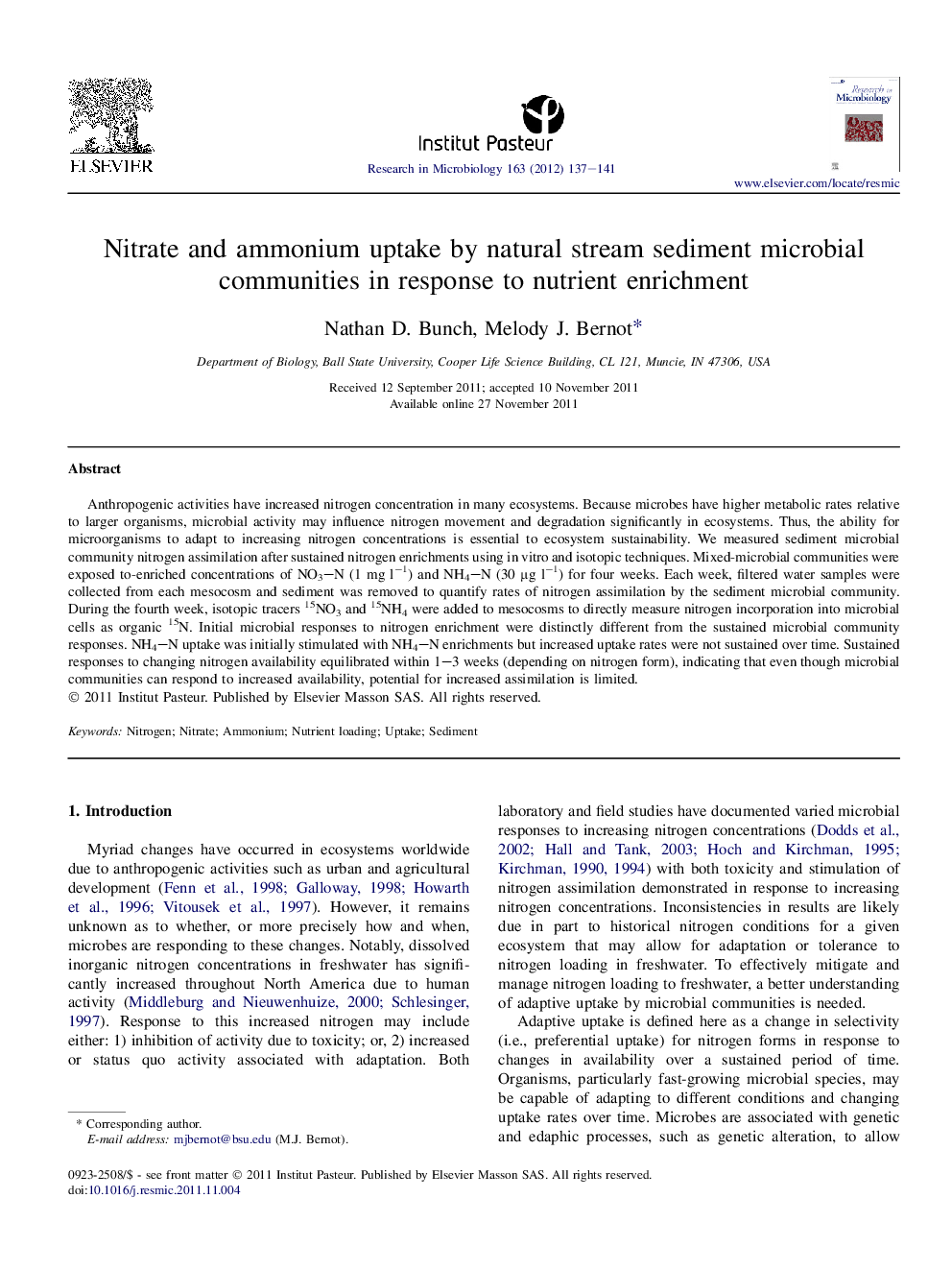| Article ID | Journal | Published Year | Pages | File Type |
|---|---|---|---|---|
| 4358863 | Research in Microbiology | 2012 | 5 Pages |
Anthropogenic activities have increased nitrogen concentration in many ecosystems. Because microbes have higher metabolic rates relative to larger organisms, microbial activity may influence nitrogen movement and degradation significantly in ecosystems. Thus, the ability for microorganisms to adapt to increasing nitrogen concentrations is essential to ecosystem sustainability. We measured sediment microbial community nitrogen assimilation after sustained nitrogen enrichments using in vitro and isotopic techniques. Mixed-microbial communities were exposed to-enriched concentrations of NO3–N (1 mg l−1) and NH4–N (30 μg l−1) for four weeks. Each week, filtered water samples were collected from each mesocosm and sediment was removed to quantify rates of nitrogen assimilation by the sediment microbial community. During the fourth week, isotopic tracers 15NO3 and 15NH4 were added to mesocosms to directly measure nitrogen incorporation into microbial cells as organic 15N. Initial microbial responses to nitrogen enrichment were distinctly different from the sustained microbial community responses. NH4–N uptake was initially stimulated with NH4–N enrichments but increased uptake rates were not sustained over time. Sustained responses to changing nitrogen availability equilibrated within 1–3 weeks (depending on nitrogen form), indicating that even though microbial communities can respond to increased availability, potential for increased assimilation is limited.
